
Born and raised under the South Florida sun, I'm an engineer passionate about driving environmental innovation in the private sector.
Currently working at the intersection of climate, community, and design as an environmental consultant in Miami!
Outside of work, I enjoy exploring new running routes, checking out good vegan spots, and keeping up with the latest in environmental trends and policy.
About Me
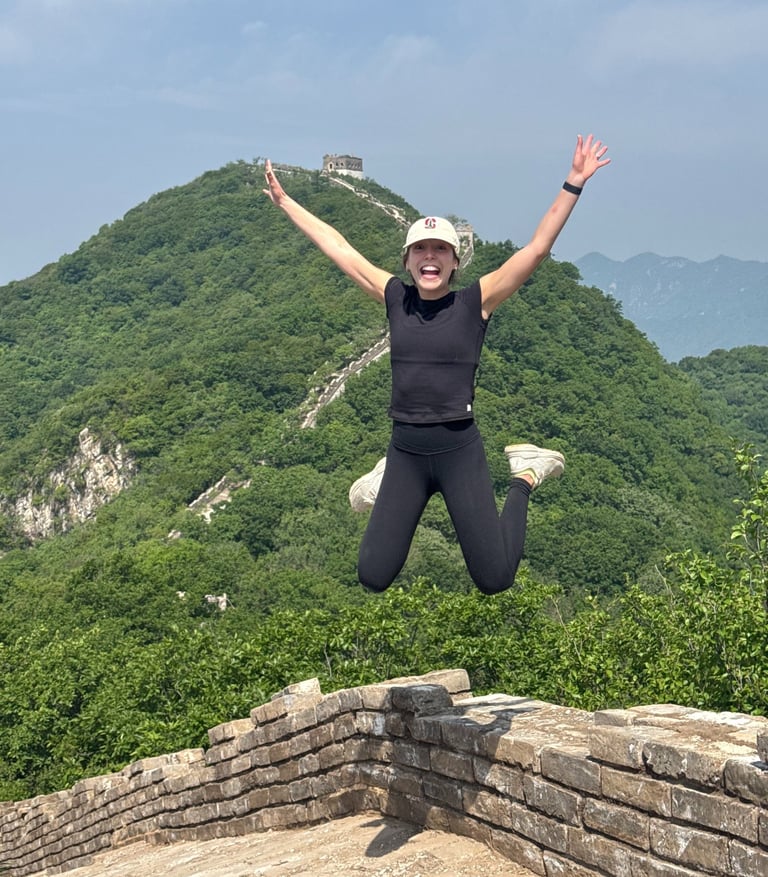

Allison Weinstock
Experience
Fundusol
Program Manager
2024
Led business strategy and regulatory compliance for innovative agrivoltaics software platform, securing $50,000 DOE Solar Prize grant and utilizing GIS analysis to identify optimal solar-agriculture development opportunities.
Trinity Consultants
Consultant
2021 — 2023
Managed end-to-end EHS compliance solutions for major clients across diverse sectors (manufacturing, energy, waste management, technology), specializing in GIS air dispersion modeling, emissions analysis, and technical documentation while conducting on-site process validations.
Education
Stanford University
University of Florida
2023 — 2025
2016 — 2021
B.S. in Chemical Engineering
M.S. in Environmental Engineering




RS&H
Consultant
2025 — Present
Recently joined the Environmental Stewardship, Risk, and Resiliency (ESR) team supporting high-impact infrastructure projects through Envision sustainability verification, sea level rise risk assessments, and regulatory compliance strategies that advance climate resilience and long-term sustainability goals.
Recent Projects
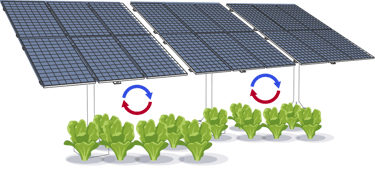

Fundusol Agrivoltaics
Fundusol, a Stanford TomKat Institute startup, is pioneering agrivoltaic systems that combine solar energy with agriculture to maximize both crop yields and energy generation. I have been working with GIS and the team to help develop scalable solutions that make dual-purpose land use both accessible and profitable for American farmers.
Policy Report: Increasing Accessibility to Trusted Climate Performance Data
I co-authored a policy report developed through a Stanford Law School practicum, in partnership with the Data Foundation and Stanford’s Doerr School of Sustainability.
The paper examines the critical gap in investor-grade performance metrics for GHG reductions and removals, particularly in methane mitigation, carbon removal, and forest-based carbon strategies. Drawing on the expertise of professionals across these sectors, it offers actionable recommendations for how government, industry, and research institutions can collaborate to build transparent, standardized systems for GHG performance accounting and data sharing.
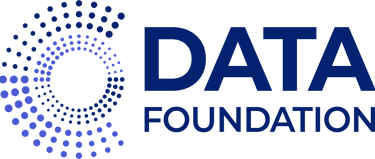

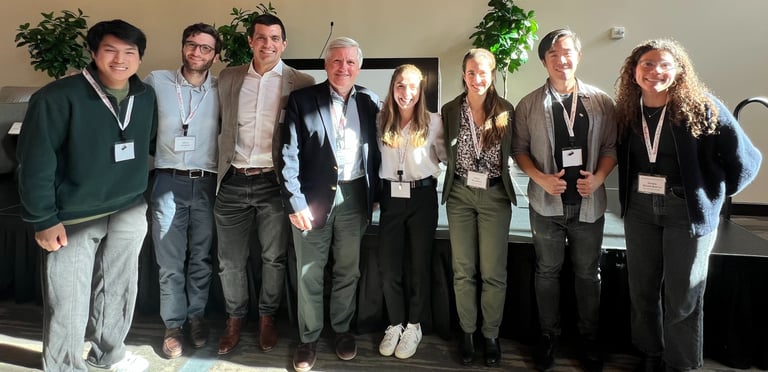



Portfolio
The following excerpts are taken from joint projects but only display my contributions:
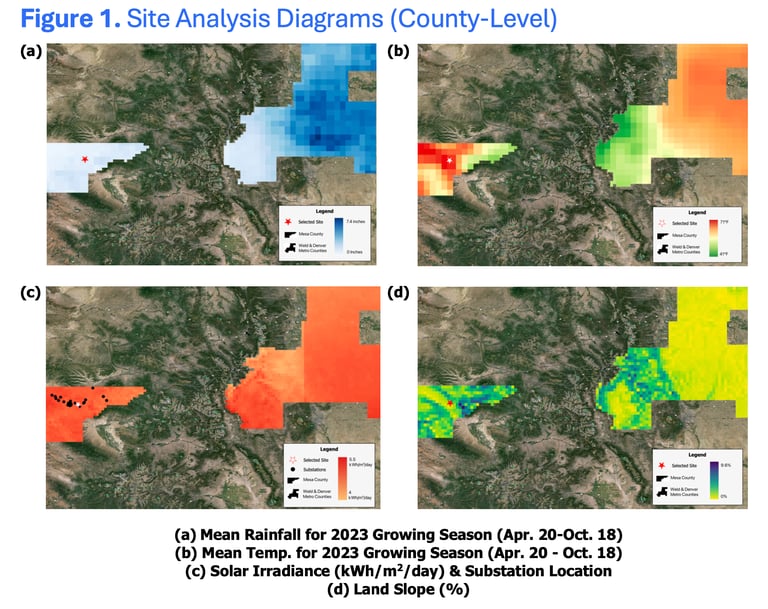

2024 Agrivoltaics Student Design Competition
Our winning proposal was showcased at the 2024 World Argivoltaics Conference in Colorado where we presented our innovative approach to combining renewable energy generation with sustainable agriculture. I conducted comprehensive spatial data analysis to optimize the site selection and system design. My contributions included analyzing land use patterns, topographical features, solar radiation potential, and agricultural suitability through advanced GIS mapping and modeling. This data-driven approach was crucial in developing evidence-based solutions that maximized both agricultural productivity and solar energy generation.
An Investigation into Florida’s Great Outdoor Initiative
A study to examine the ecological implications of Florida's 2025 Great Outdoors Initiative, specifically focusing on the proposed recreational development at Jonathan Dickinson State Park (JDSP). The research utilized the Natural Capital Project's InVEST Coastal Vulnerability model to determine how converting portions of JDSP's natural landscape into recreational facilities might impact crucial ecosystem services, specifically focusing on coastal vulnerability using the exposure risk index to measure model outcomes.
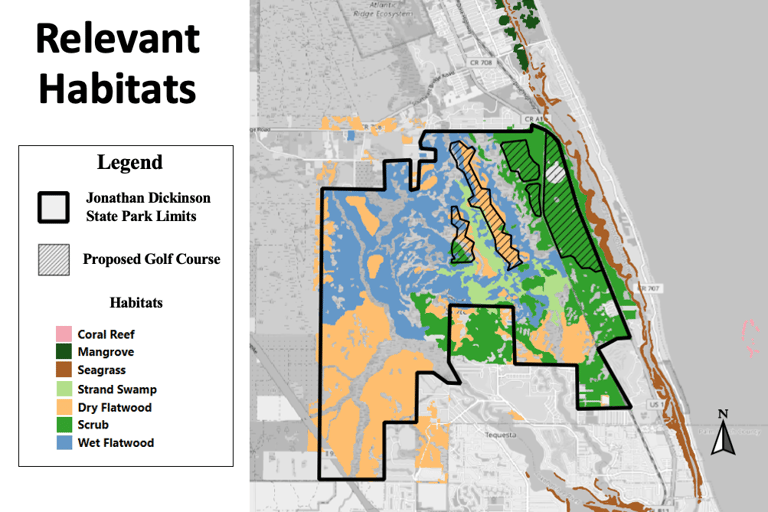

Write your text here...
